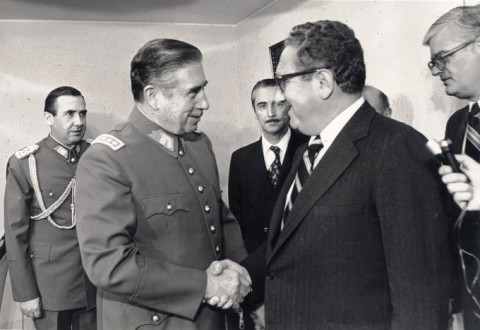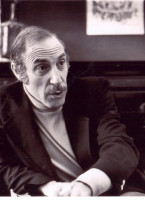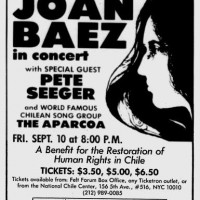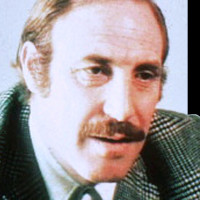TNI and IPS applaud declassification of Letelier-Moffitt assassination case documents
Regions
The Institute for Policy Studies and Transnational Institute applaud the U.S. Department of State for finally declassifying documents related to the 1976 assassination of two IPS colleagues by agents of the Chilean dictatorship and call for the remaining ones to be declassified.

Wikipedia
FOR IMMEDIATE RELEASE
Both institutes have long argued that Pinochet was closely involved in ordering the killing of Transnational Institute’s second director Orlando Letelier, but the just-released documents are the first official statements to point the finger directly at Chilean dictator Augusto Pinochet.
In a 1987 memo to President Ronald Reagan, then-Secretary of State George Shultz reported that the CIA had “convincing evidence” that Pinochet personally ordered the murders. “This is a blatant example of a chief of state’s direct involvement in an act of state terrorism, one that is particularly disturbing both because it occurred in our capital and since his government is generally considered to be friendly,” Shultz wrote.
The assassination took place on September 21, 1976, when IPS colleagues Orlando Letelier and Ronni Karpen Moffitt were killed by a car bomb in Washington, DC. Letelier, a former Chilean ambassador to the United States who directed IPS’s sister organization the Transnational Institute (TNI), was one of the Pinochet regime’s most outspoken critics. Moffitt was a 25-year old American who worked as an IPS development associate.
“The friends and family members of Letelier and Moffitt deserve to know who ordered this heinous act of international terrorism—and who might have prevented it,” said IPS Director John Cavanagh. “These documents appear to vindicate our long-held belief that it would have been inconceivable for this assassination to have taken place without the authorization of Chilean dictator Augusto Pinochet.”
IPS has awarded human rights prizes in Letelier and Moffitt’s names for 39 years and together with TNI has worked with lawyers, human rights activists, family members, policymakers, and others to pursue justice for them and the thousands of other victims of the Pinochet regime.
In 1995, IPS and TNI Fellow Saul Landau, who died in 2013, co-edited a book with Spanish lawyer Joan Garces (Orlando Letelier: Testimony and Vindication) which accused Pinochet of authorizing the assassination of Letelier, citing statements by a former FBI agent who was no longer alive.
When Garces became the chief lawyer in a Spanish case charging Pinochet with crimes against humanity, TNI and IPS worked with others to help him secure legal cooperation from U.S. authorities.
After Pinochet’s arrest in London in 1998 in response to a Spanish request, IPS joined with the National Security Archives and other groups to demand that the U.S. government take actions to hold Pinochet accountable for his crimes, including releasing classified documents related to the U.S. government and the Chilean dictatorship.
In June 1999, the Clinton Administration declassified more than 16,000 government documents related to the Pinochet dictatorship. These documents have served as evidence in legal cases against human rights violators.
The government held back documents specifically related to the Letelier-Moffitt case on the grounds that they were part of an ongoing investigation. And indeed, in March 2000, a team of U.S. law enforcement officials travelled to Chile for court proceedings involving 42 potential witnesses subpoenaed by Chile’s Supreme Court on behalf of the U.S. government.
The Washington Post reported on May 28, 2000 that “Federal investigators have uncovered evidence that some of them believe is sufficient to indict General Augusto Pinochet for conspiracy to commit murder in the 1976 car bombing.” While a draft indictment of Pinochet was reportedly prepared by Clinton administration officials, the administration of President George W. Bush failed to take action.
With no sign of progress on an investigation, Peter Kornbluh of the National Security Archives led the call for the declassification of these remaining documents related to the Letelier-Moffitt case.
“This release of documents is yet another important step in the long struggle against impunity,” said TNI Director Fiona Dove. “We have long known that our Director was assassinated by Pinochet’s order for galvanising popular international support against his vicious dictatorial regime. It is time now for the full release of all documents related to the case, including those that unveil the role of US government officials in protecting Pinochet from facing justice for many years.”
“While Pinochet never faced trial, there have been many measures of justice over the years in the Letelier-Moffit case,” said IPS Director Cavanagh. “The efforts of family members, human rights activists, bold lawyers, and a handful of committed elected officials have changed the course of history. They have charted new ground in international human rights, including the “Pinochet Precedent” established when British courts stripped the former dictator of his “sovereign immunity” and ruled that Spain could extradite him for torture. This is just the latest step in a long and inspiring struggle for justice.”
Previous Milestones on the Path to Accountability for the Assassination of Orlando Letelier and Ronni Karpen Moffitt
On September 10, 1976, Chilean Dictator Augusto Pinochet revoked the citizenship of Orlando Letelier, who had served as Chile’s ambassador to the United States and as a cabinet minister in the government of Dr. Salvador Allende before the 1973 coup. That night, Letelier filled the seats at Madison Square Garden for an anti-Pinochet rally, telling the crowd: “I was born a Chilean, I am a Chilean, and I will die a Chilean. They were born traitors, they live as traitors, and they will be known forever as fascist traitors.”
Eleven days later, on September 21, 1976, agents of Pinochet assassinated Letelier as he drove to work at the Institute for Policy Studies with his colleague, 25-year-old American Ronni Karpen Moffitt. The car bombing on Massachusetts Avenue in Washington, DC, was a devastating blow to their families, their friends, their colleagues, and to the global crusade for human rights. But over these past 30 years, there have been measures of justice.
ASSASSINS FACE JUSTICE
Between 1978 and 1991, U.S. authorities prosecuted seven people in connection with the crime. Michael Townley, a U.S. citizen working for the Chilean secret police, pled guilty in 1978 to organizing the assassination, and received a reduced sentence in exchange for testimony against five Cuban exiles involved in the bombing. A Chilean Army captain, Armando Fernandez Larios, also pled guilty for his role. An independent IPS investigation into the crime, led by Saul Landau, resulted in a book, “Assassination on Embassy Row,” (co-authored with and recently updated by John Dinges) and helped keep up the pressure for justice.
FALL OF THE GENERALS
In 1995, 19 years after the Letelier-Moffitt murders, former Chilean Secret Police Chief Manuel Contreras and Brig. Gen. Pedro Espinoza were sent to prison in Chile for their roles in the crime.
FIRST “WRONGFUL DEATH” SUIT AGAINST A FOREIGN NATION
In 1978, U.S. lawyers Michael Tigar and Sam Buffone filed a civil suit on behalf of family members of Letelier and Moffitt against the assassins and the Republic of Chile. It was the first wrongful-death suit filed in the United States against a foreign nation. After the 1990 transition to democracy, the Chilean government settled the suit.
PINOCHET ARRESTED IN SPAIN
On October 16, 1998, London police arrested Pinochet on an order from the Spanish courts. The Spanish case had been filed by lawyer Juan Garcés, on behalf of victims. While a British magistrate ruled that Spain could extradite Pinochet for torture, in March 2000, the British Home Secretary released the former dictator on humanitarian grounds.
U.S. SECRET DOCUMENTS RELEASED
In 1999, the Clinton Administration responded to pressure from the National Security Archive and other human rights groups by declassifying more than 16,000 secret government documents related to Chile and the relationship between the U.S. government and the Pinochet dictatorship. The declassified documents helped clarify the history of U.S. intervention in Chile and have served as evidence in legal cases against human rights violators.
U.S. INVESTIGATION OF PINOCHET RE-OPENED
In March 2000, a team of U.S. law enforcement officials traveled to Chile for court proceedings involving 42 potential witnesses subpoenaed by Chile’s Supreme Court on behalf of the U.S. government. The Washington Post reported that “Federal investigators have uncovered evidence that some of them believe is sufficient to indict General Augusto Pinochet for conspiracy to commit murder in the 1976 car bombing.” While a draft indictment of Pinochet was reportedly prepared by Clinton administration officials, no action appears to have been taken since President Bush took power.
PINOCHET AND OTHER MILITARY OFFICERS INDICTED IN CHILE
Within 72 hours of Pinochet’s return to Chile from London in March 2000, Chilean Judge Juan Guzman moved to strip his immunity from prosecution, initiating a series of prosecutions that continue today. Twice—in 2000 and again in 2004—Guzman succeeded in indicting Pinochet. In both cases superior courts declared Pinochet mentally unfit for trial. Since Pinochet’s London arrest, over 300 other Chilean military officers have faced legal proceedings for human rights violations. Armando Fernandez Larios, who admitted his role in the Letelier-Moffitt assassination to U.S. authorities, was also held liable by a U.S. jury for crimes against humanity.
PINOCHET EXPOSED AS A THIEF
In February 2005, Riggs Bank agreed to settle a case brought by lawyers Juan Garcés and Sam Buffone by paying $9 million to victims of Pinochet for the bank’s role in concealing and spiriting Pinochet’s money out of Great Britain in 1999. In November 2005, Pinochet was arrested and placed under house arrest for charges related to tax evasion, passport forgery and other crimes associated with his possession of hundreds of illegal bank accounts, many of them in the United States. In August 2006, the Chilean Supreme Court stripped Pinochet’s immunity from prosecution, opening the way for additional charges related to these multi-million dollar accounts.
Pinochet died on December 10, 2006. At that time, about 300 criminal charges were still pending against him in Chile for numerous human rights violations, tax evasion, and embezzlement.
These milestones stand as a testament to the power of persistence. As Martin Luther King once said, “the arc of the moral universe is long, but it bends toward justice.”
For further information: see TNI and the Pinochet Precedent




